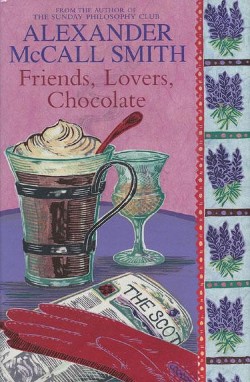In his recent article in Chemistry International [1], Peter Atkins wrote:
The book has no future. Most of us who have been brought up surrounded by the tactile pleasure of paper books (p-books) have a sentimental attachment to them, relishing their feel, enjoying being curled up with them in their friendly presence, responding perhaps subconsciously to their smell, enjoying their instant access, finding it easy to browse, serendipitously opening a page and lighting on an enjoyable enlightenment. For those like us in this respect, there will always be paper books, just as there are vintage cars for enthusiasts. The rest of the world, however, will have moved on.

With all respect to the author of the classic Physical Chemistry textbook — the Russian translation of which I was using in my university days — I disagree. The printed book existed for hundreds of years and it will take more than advent of cheap e-book readers to make p-book extinct. It was predicted that compact discs will kill vinyl, then that DVD-Audio and Super Audio CD will kill CDs, and that mp3 downloads will render all of the above obsolete. Today very few people remember what DVD-Audio or SACD was all about, while vinyl sales are on the rise. (The only SACD I have is 30th Anniversary Edition of Dark Side of the Moon which I bought ten years ago and never had a chance to listen in all its 5.1 surround glory.)
If anything has no future, it is the traditional publishing model. The big publishing houses missed their many chances to make any meaningful contribution to e-books. Now, the main focus of Atkins’s article is on textbooks. He seems to be either unaware of the Open Access movement, or simply ignores it. He mentions some “wikitexts” but, amazingly, never names either Wikipedia, Wikibooks or Wikisource. Too bad. With all the wealth of free educational information on the Web, one must be mad to buy e-textbooks. In the meantime, the authors increasingly move to self-publishing. Who needs the middlemen?
Interestingly, in his earlier article on the same topic [2], Professor Atkins explained exactly why p-books will stay with us:
A p-book is a beautiful thing. It smells good when new, it generally looks good, and it has the virtue of serendipity, for casual browsing can bring the browser to an unexpected viewpoint. The approximate location of knowledge in books can be remembered, or at least half-remembered, for years. Books are life’s companions, and even the sight of a volume on a shelf can remind one of a special moment. But, most important of all, a p-book is “always on.” A book can be opened at a whim and immediately offers its contents to its reader. Books can be read in the brightest sunlight, on the balmiest beach, at almost any angle, in even the most bizarre bodily posture, for hours on end, even while one’s airplane is landing and taking off.
Printed matter is self-sufficient. You don’t need any device to read it. If hacker attacks destroy all Amazon Cloud services, or a hurricane plunges the cities into darkness, the books will still be there. If there are problems with sat nav reception or you forgot to charge the mobile phone, the map still can help. And so on.
But what the new generation think? My children love their PCs, Wii and MP3 players. I asked them today what they prefer, e-book or p-book. And the answer is: the real thing.

- Atkins, P. (2013) The future of the book. Chemistry International 35, 3—6.
- Atkins, P. (2009) Beyond the book. Chemistry International 31, 9—11.


